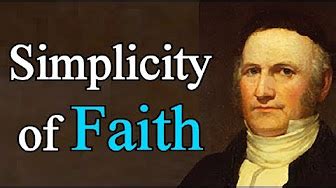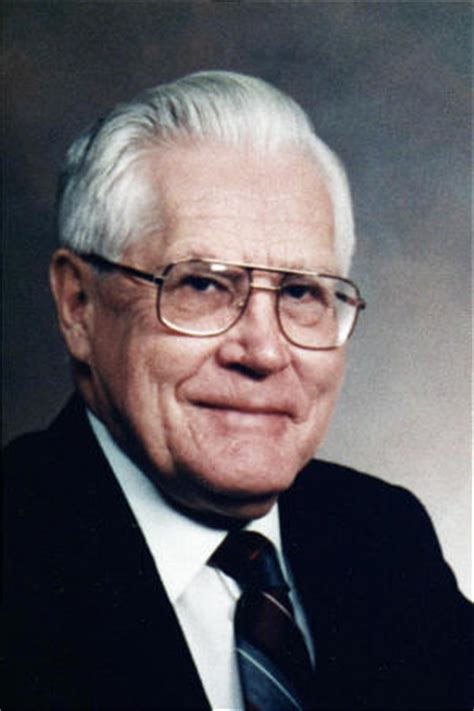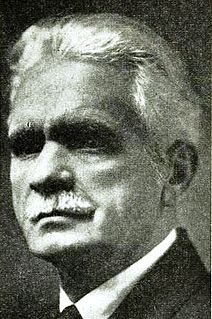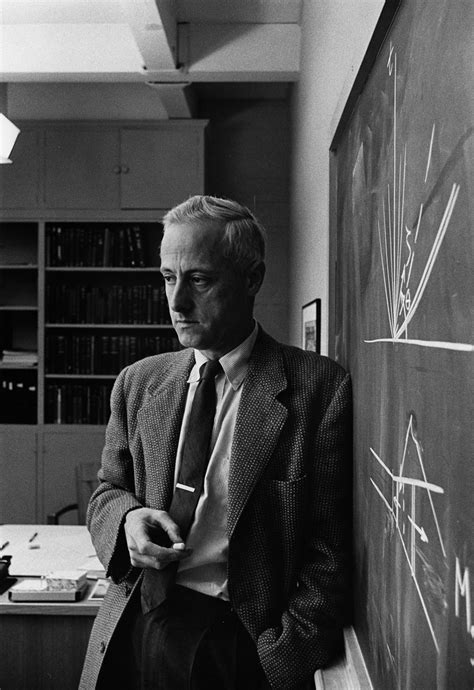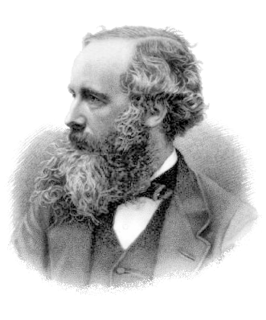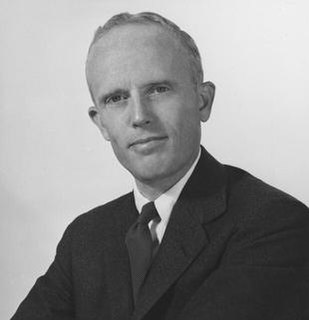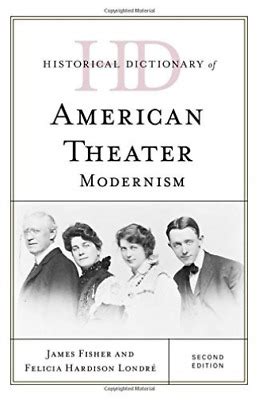Top 1200 Infinite Knowledge Quotes & Sayings - Page 5
Explore popular Infinite Knowledge quotes.
Last updated on April 21, 2025.
You need an infinite stretch of time ahead of you to start to think, infinite energy to make the smallest decision. The world is getting denser. The immense number of useless projects is bewildering. Too many things have to be put in to balance up an uncertain scale. You can't disappear anymore. You die in a state of total indecision.
And now that Thou has restored to me the knowledge of Thyself, O Lord, let thy pardon fall on me, since Thy infinite mercy is not better known in anything than in pardoning a Dismas (the traditional name of the good thief) on the Cross and a Dominicus Corea on the gallows. If in Hell there is room for sinners, in Heaven also there is room for penitents.
In mysticism, knowledge cannot be separated from a certain way of life which becomes its living manifestation. To acquire mystical knowledge means to undergo a transformation; one could even say that the knowledge is the transformation. Scientific knowledge, on the other hand, can often stay abstract and theoretical. Thus most of today’s physicists do not seem to realize the philosophical, cultural and spiritual implications of their theories.
I think there's a shamanic temperament, which is a person who craves knowledge, knowledge in the Greek sense of gnosis. In other words, knowledge not of the sort where you subscribe to Scientific American, and it validates what you believe, but cosmologies constructed out of immediate experiences that are found to be always applicable.
Without self knowledge, without understanding the working and functions of his machine, man cannot be free, he cannot govern himself and he will always remain a slave. What you WANT is irrelevant, what you've CHOSEN is at hand. You and I are essentially infinite choice-makers. In every moment of our existence, we are in that field of all possibilities where we have access to an infinity of choices.
My curiosity, alas, is not the kind that can be satisfied by objective knowledge. Plato said that opinion is worthless and that only knowledge counts, which is a neat formulation. ... But melancholy Danes from the northern mists understand that opinion is all there is. The great questions transcend fact, and discourse is a process of personality. Knowledge cannot respond to knowledge. And wisdom? Is it not opinion refined, opinion killed and resuscitated upward? Maybe Plato would have agreed with this.
From a mind filled with infinite love comes the power to create infinite possibilities. We have the power to think in ways that reflect and attract all the love in the world. Such thinking is called enlightenment. Enlightenment is not a process we work toward, but a choice available to us in any instant.
My desire for knowledge is intermittent; but my desire to bathe my head in atmospheres unknown to my feet is perennial and constant. The highest that we can attain to is not Knowledge, but Sympathy with Intelligence. I do not know that this higher knowledge amounts to anything more definite than a novel and grand surprise on a sudden revelation of the insufficiency of all that we called Knowledge before,—a discovery that there are more things in heaven and earth than are dreamed of in our philosophy.
The Holy Ghost serves . . . as a revelator, revealing great, new, and important truths. God, with his infinite knowledge and power has developed a system of communication far superior to anything mortals have yet developed or even conceived. Through the Holy Spirit, he is able to communicate with his children instantly, individually, and personally.
By this we may understand, there be two sorts of knowledge, whereof the one is nothing else but sense, or knowledge original (as I have said at the beginning of the second chapter), and remembrance of the same; the other is called science or knowledge of the truth of propositions, and how things are called, and is derived from understanding.
The knowledge of the individual citizen is of less value than the knowledge of science. The former is the opinion of individuals. It is merely subjective and is excluded from policies. The latter is objective - defined by science and promulgated by expert spokesmen. This objective knowledge is viewed as a commodity which can be refined... and fed into a process, now called decision-making. This new mythology of governance by the manipulation of knowledge-stock inevitably erodes reliance on government by people.
The endless cycle of idea and action, Endless invention, endless experiment, Brings knowledge of motion, but not of stillness; Knowledge of speech, but not of silence; Knowledge of words, and ignorance of the Word. All our knowledge brings us nearer to our ignorance, All our ignorance brings us nearer to death, But nearness to death no nearer to God. Where is the Life we have lost in living? Where is the wisdom we have lost in knowledge? Where is the knowledge we have lost in information? The cycles of Heaven in twenty centuries Bring us farther from God and nearer to the Dust.
Knowledge is power." Rather, knowledge is happiness, because to have knowledge - broad, deep knowledge - is to know true ends from false, and lofty things from low. To know the thoughts and deeds that have marked man's progress is to feel the great heart-throbs of humanity through the centuries; and if one does not feel in these pulsations a heavenward striving, one must indeed be deaf to the harmonies of life.
Each member of society can have only a small fraction of the knowledge possessed by all, and...each is therefore ignorant of most of the facts on which the working of society rests...civilization rests on the fact that we all benefit from knowledge which we do not possess. And one of the ways in which civilization helps us to overcome that limitation on the extent of individual knowledge is by conquering intelligence, not by the acquisition of more knowledge, but by the utilization of knowledge which is and which remains widely dispersed among individuals.
So the problem in the West is that, especially in places like the USA, a person will obtain this much knowledge and immediately think that they have a large amount of knowledge. And then start to act on the basis of what they think, they posses. Instead of having this much knowledge and realizing that in fact this is only this much knowledge and the amount of where you can go there is where you came is much bigger than where you've already gotten.
The human species was given dominion over the earth and took the opportunity to exterminate other species and warm the atmosphere and generally ruin things in its own image, but it paid this price for its privileges: that the finite and specific animal body of this species contained a brain capable of conceiving the infinite and wishing to be infinite itself.
We have no knowledge, that is, no general principles drawn from the contemplation of particular facts, but what has been built up by pleasure, and exists in us by pleasure alone. The Man of Science, the Chemist and Mathematician, whatever difficulties and disgusts they may have had to struggle with, know and feel this. However painful may be the objects with which the Anatomist's knowledge is connected, he feels that his knowledge is pleasure; and where he has no pleasure he has no knowledge.
The actual infinite arises in three contexts: first when it is realized in the most complete form, in a fully independent otherworldly being, in Deo, where I call it the Absolute Infinite or simply Absolute; second when it occurs in the contingent, created world; third when the mind grasps it in abstracto as a mathematical magnitude, number or order type.
Whatever is placed beyond the reach of sense and knowledge, whatever is imperfectly discerned, the fancy pieces out at its leisure; and all but the present moment, but the present spot, passion claims for its own, and brooding over it with wings outspread, stamps it with an image of itself. Passion is lord of infinite space, and distant objects please because they border on its confines and are moulded by its touch.
First, my people must be taught the knowledge of self. Then and only then will they be able to under-stand others and that which surrounds them. Anyone who does not have a knowledge of self is considered a victim of either amnesia or unconsciousness and is not very competent. The lack of knowledge of self is a prevailing condition among my people here in America. Gaining the knowledge of self makes us unite into a great unity. Knowledge of self makes you take on the great virtue of learning.
Let us, then, take our compass; we are something, and we are not everything. The nature of our existence hides from us the knowledge of first beginnings which are born of the nothing; and the littleness of our being conceals from us the sight of the infinite. Our intellect holds the same position in the world of thought as our body occupies in the expanse of nature.
In India there was a sense of time that does not tick with modern clocks, just as there is a knowledge that is not gained through science and empirical experiments. In the modern West knowledge is of objective, finite particulars in historical time. India recognizes that kind of useful information: it calls it "lower knowledge." Higher knowledge (paravidya) proceeds differently, or rather it doesn't proceed at all but enters history full-blown on the morning of a new creation.

